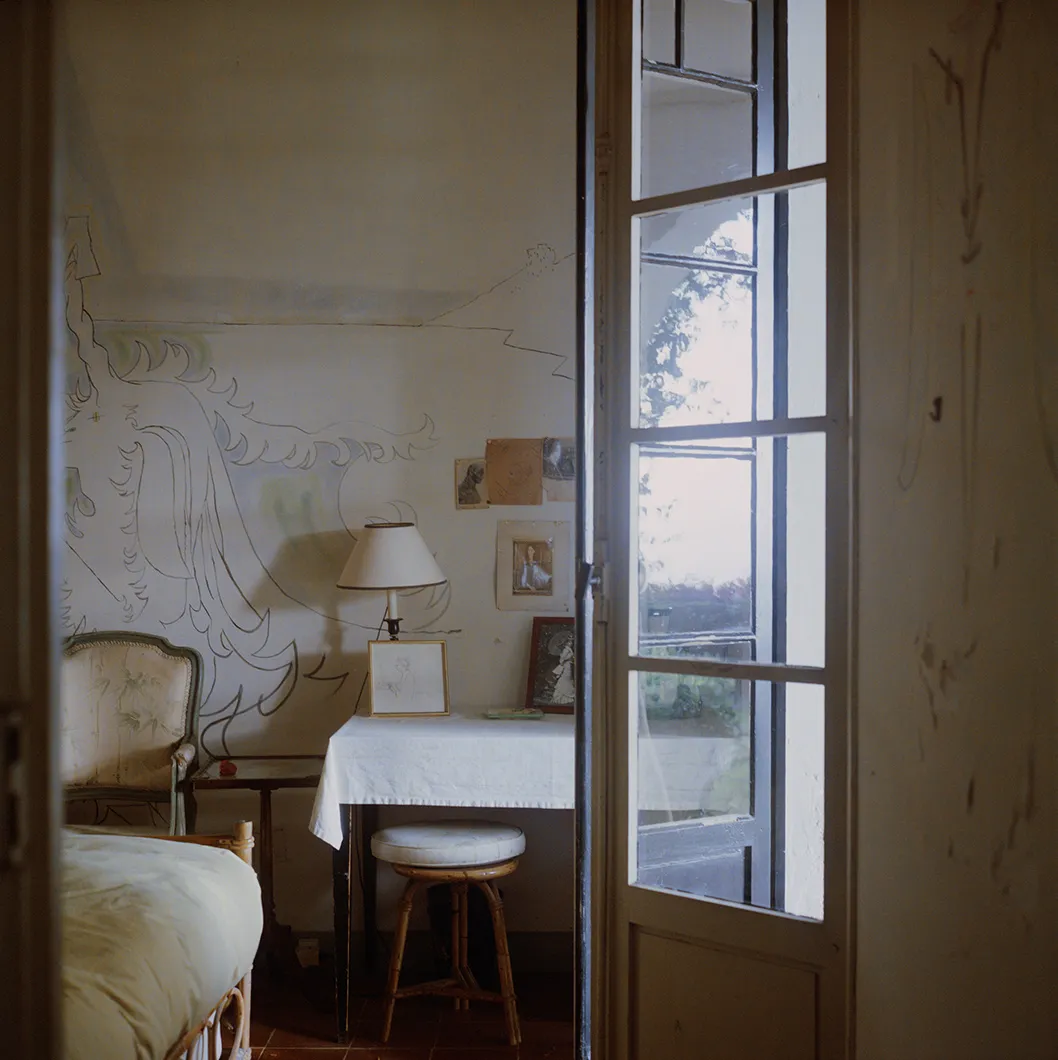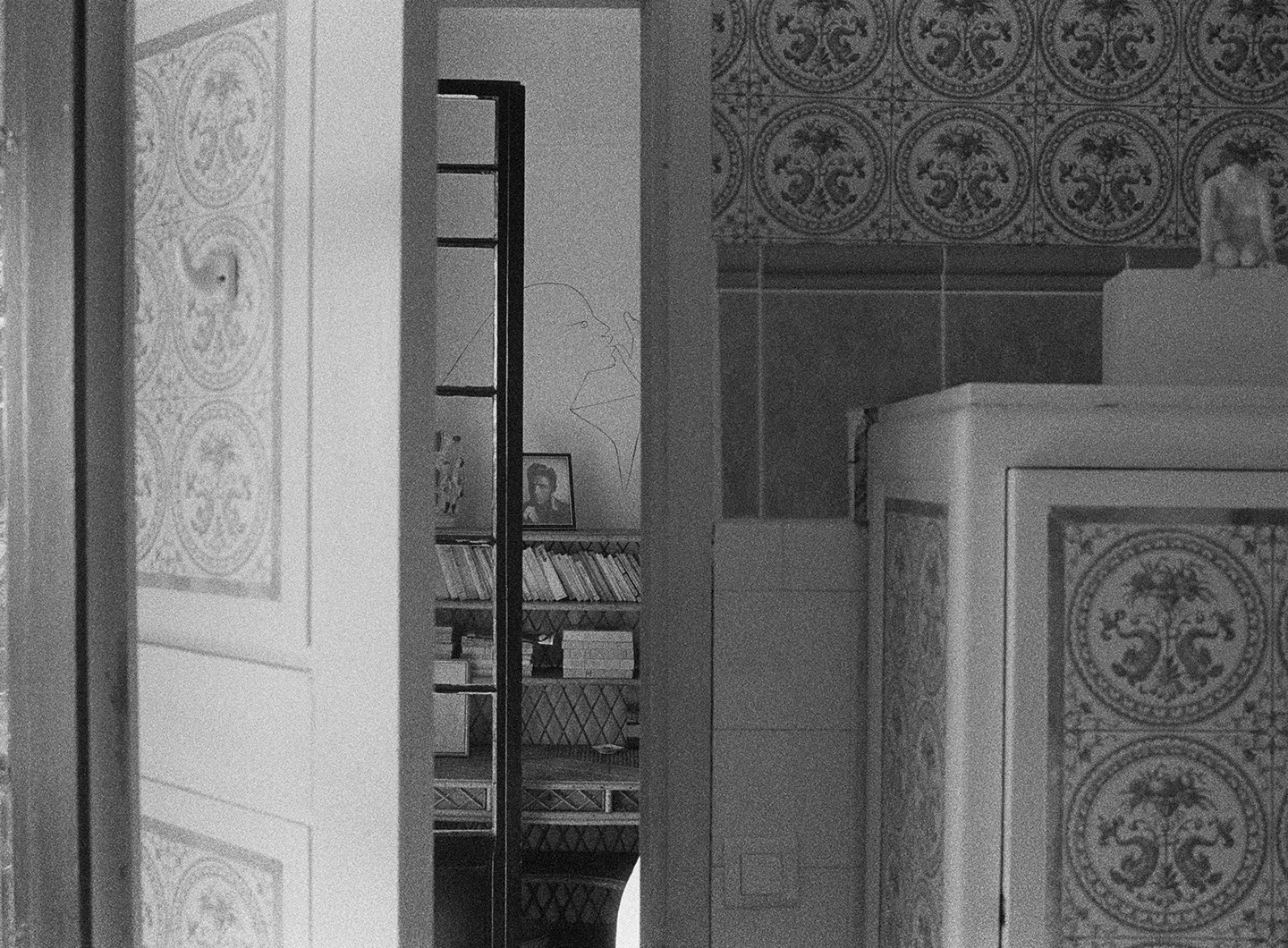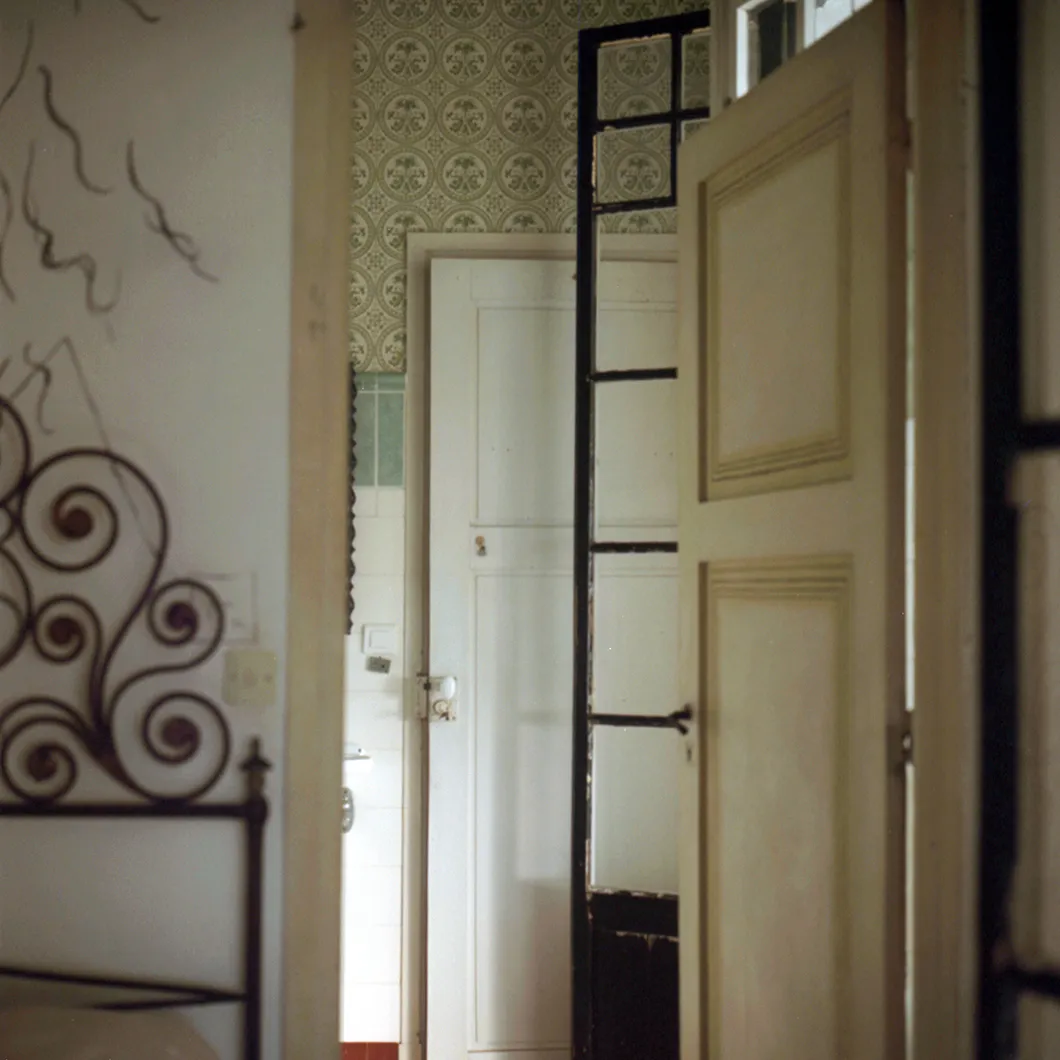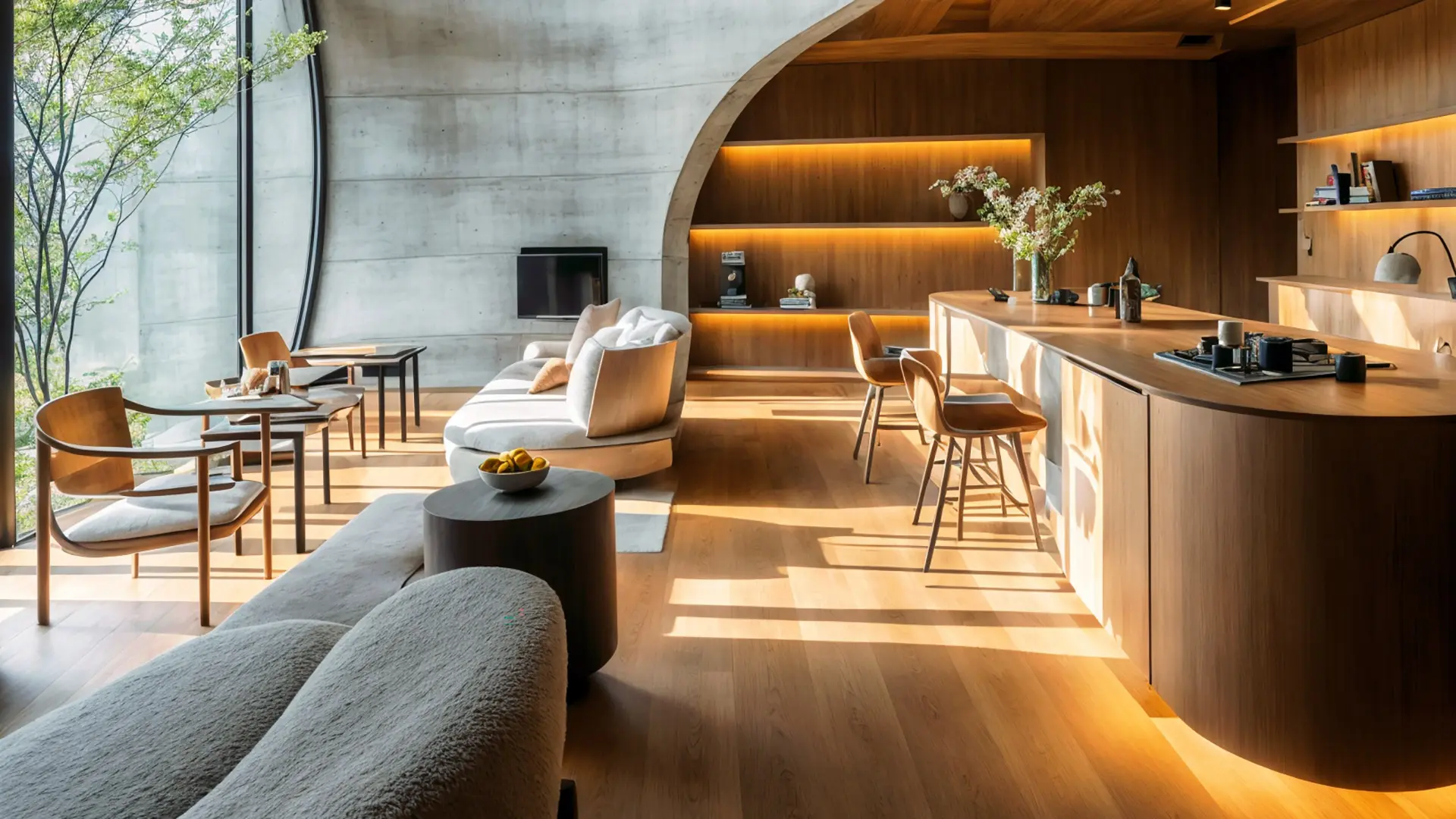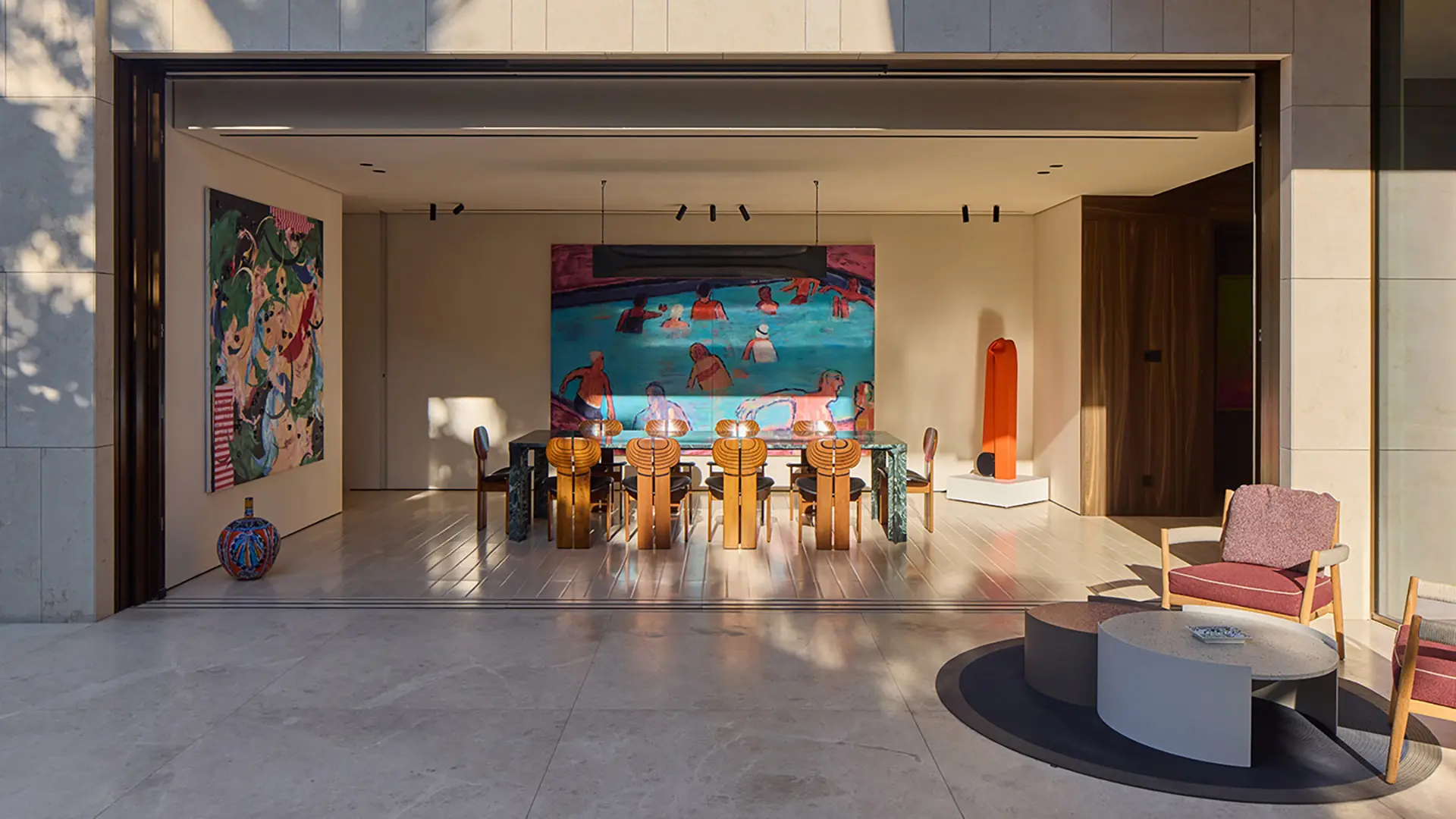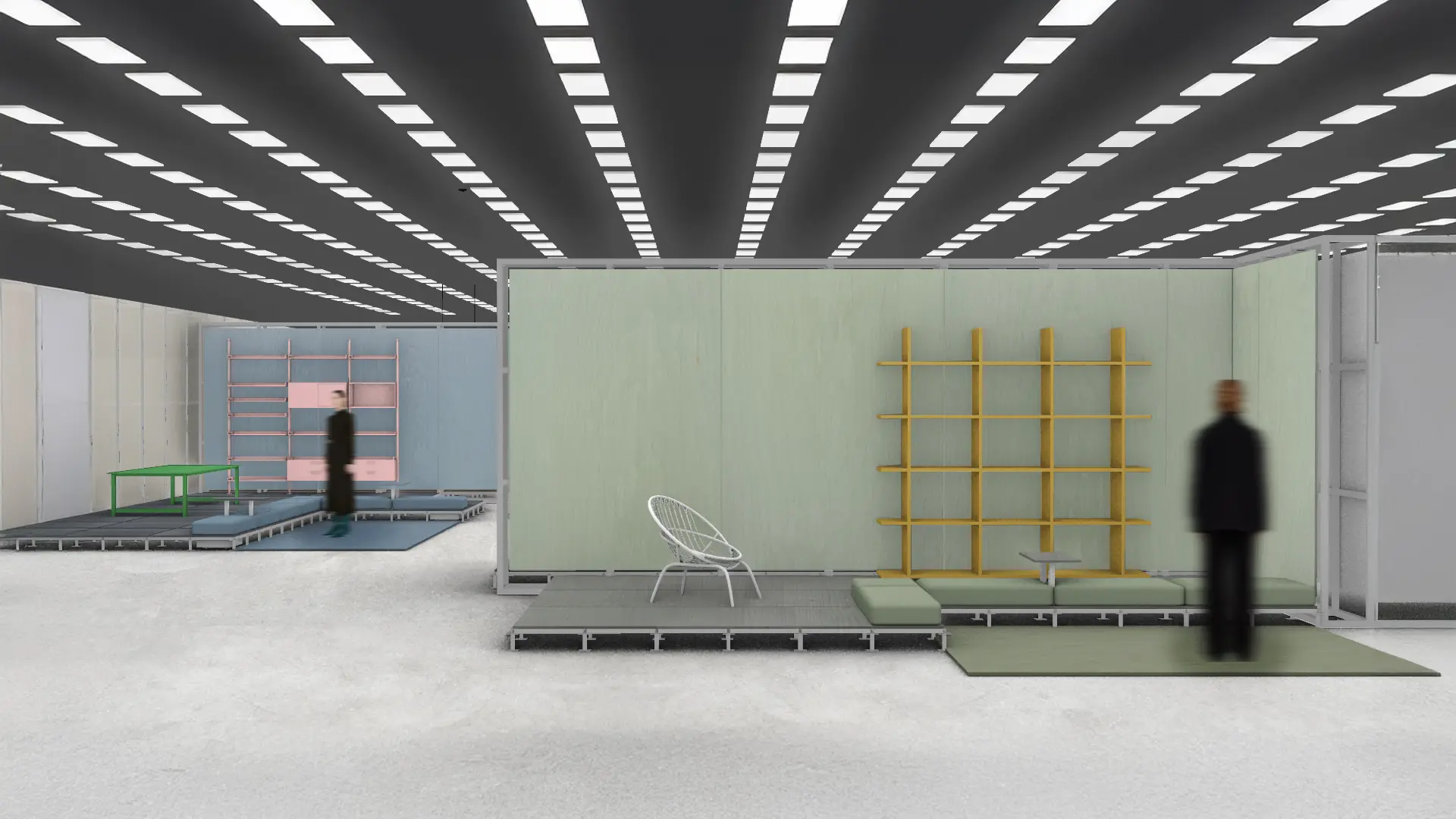Smart and sustainable purchases: how to make the most of the appliance bonus and how to apply. Requirements, amounts and limits to be aware of
Villa Santo Sospir seen through the lens of Mauro Restiffe
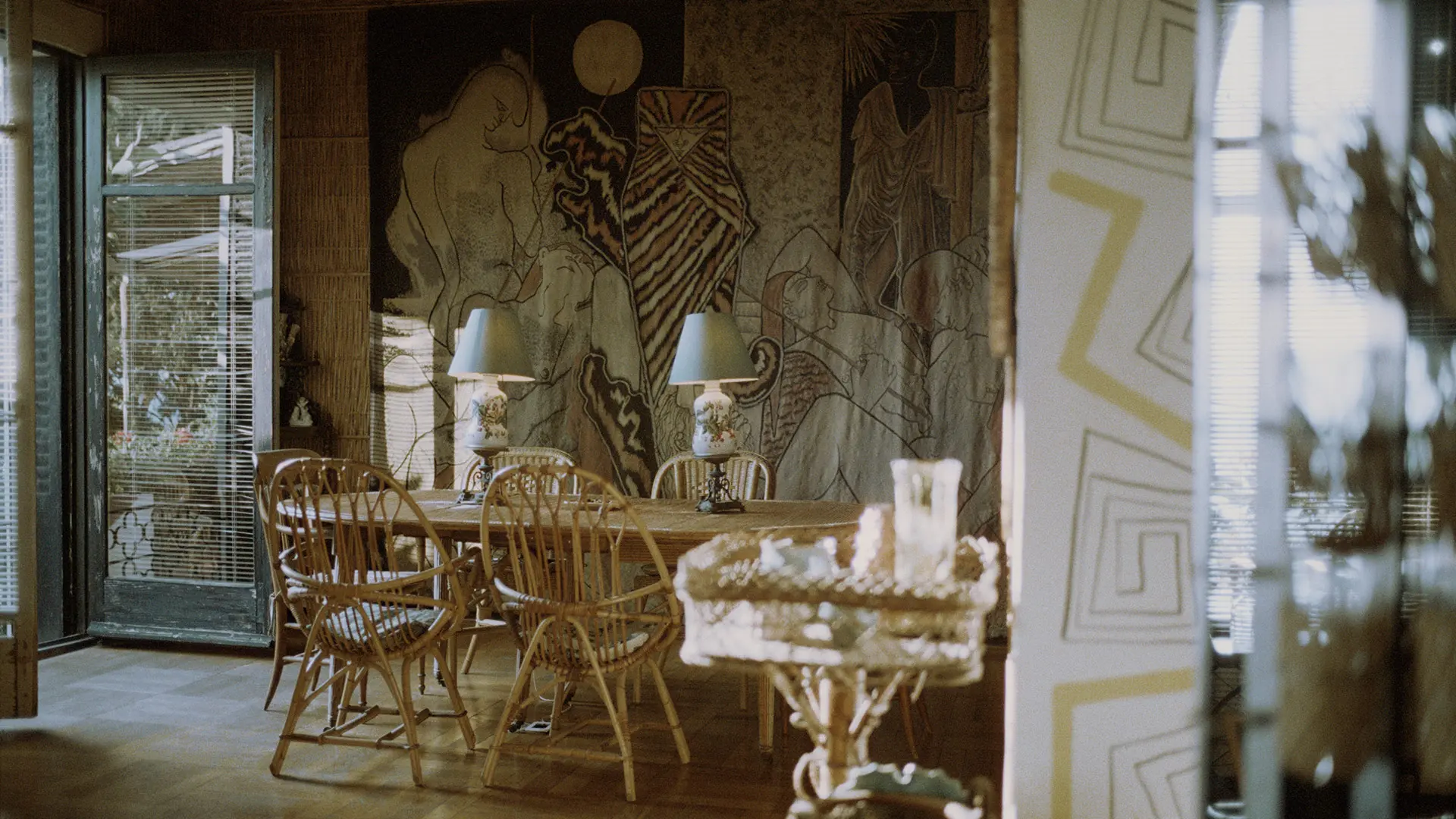
Mauro Restiffe, Santo Sospir #46, 2018. All images © Mauro Restiffe. Courtesy the artist and Fortes D’Aloia & Gabriel, São Paulo / Rio de Janeiro
A new book published by the recently established Milanese publishing house Lenz brings together the photographs taken by the Brazilian artist in the house on the Cote d’Azur “tattooed” by Jean Cocteau
There’s probably no need to tell the story of Santo Sospir. This villa in the South of France is where Jean Cocteau spent his summers from 1950 to 1961 as a guest of the socialite Francine Weisweiller, and where he “tattooed” the walls, as he himself described his frescoes on the walls of the house. It was frequented by artists such as Picasso and Matisse, who also lived in the area at the time, as well as great stylists like Pierre Cardin and Yves Saint Laurent (Francine Weisweiller was one of his muses), show business figures such as Romy Schneider and Alain Delon and entrepreneurs like the Agnellis. The villa, built during the Thirties, was acquired in 1948 by Francine’s husband Alec Weisweiller, who had survived the Nazi persecutions, as did his wife. The furnishing was entrusted to the eccentric interior decorator Madeleine Castaing, famous for her ability to mix styles, combining Italian and Javanese furniture, ceramic and rattan objects, ancient and exotic fabrics. Cocteau frescoed the walls, room by room, inspired by erotic fantasies involving tattooed sailors and dreamy youths in the sunny Cote d’Azur landscape, which he associated with Ancient Greece and its mythology.
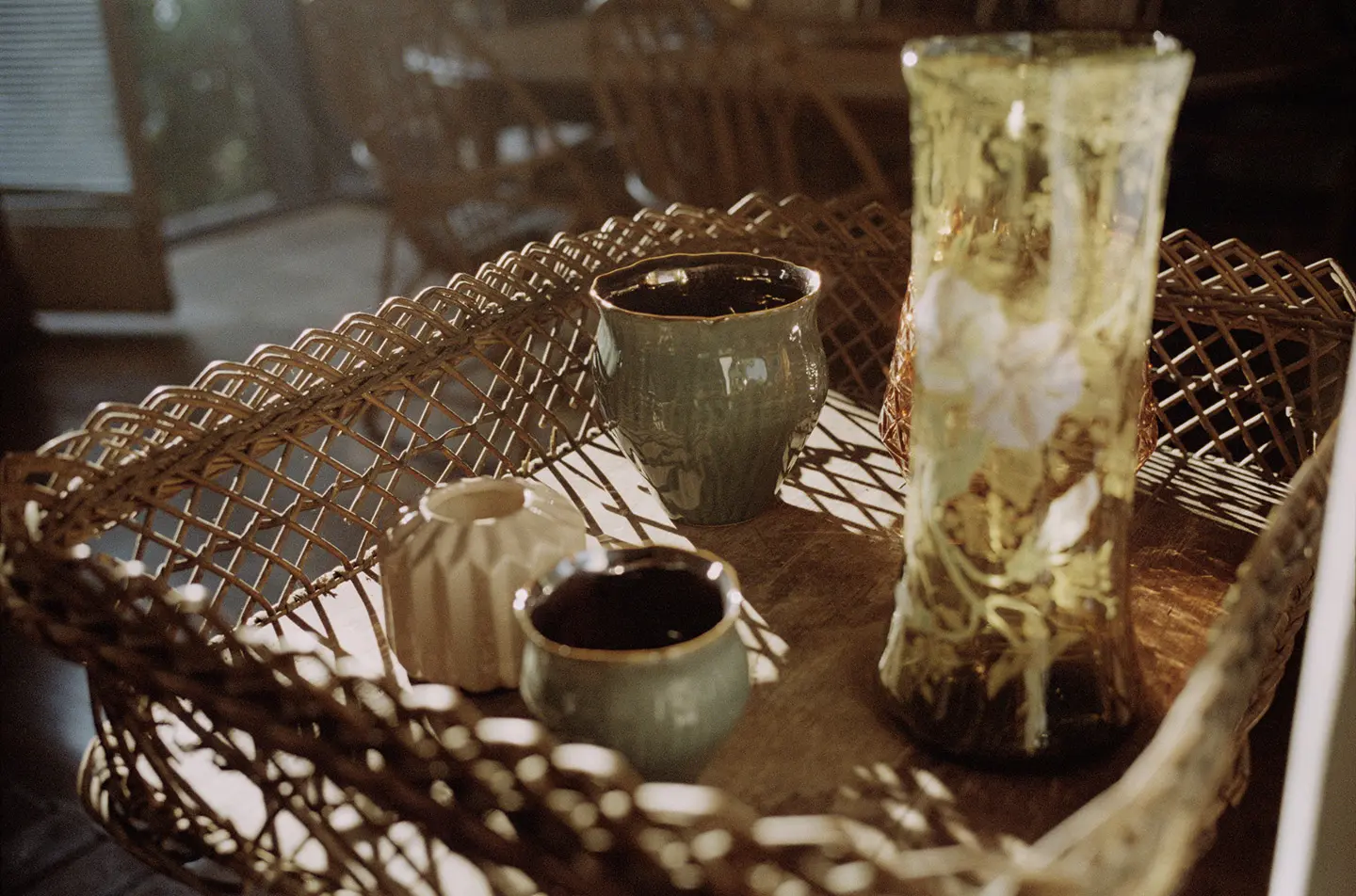
Mauro Restiffe, Santo Sospir #49, 2018. All images © Mauro Restiffe. Courtesy the artist and Fortes D’Aloia & Gabriel, São Paulo / Rio de Janeiro
The memory of that era has remained sealed between the walls of the villa for the last twenty years, since Santo Sospir was closed up following the death in 2003 of Francine Weisweiller. Unable to keep up the villa, her daughter Carole sold it to the Russian Melia family in 2018 (Marina Melia teaches psychology and coaches some of Russia’s wealthiest entrepreneurs). However, before the restoration efforts begin, entrusted to the renowned interior designer Jacques Grange, in collaboration with Florence Cremer for the conservation of the frescoes and Madison Cox for the garden, the family has commissioned Brazilian artist Mauro Restiffe to immortalise the villa’s suspended in time atmosphere in a series of photos now published in book form by the young independent Milanese publisher Lenz.
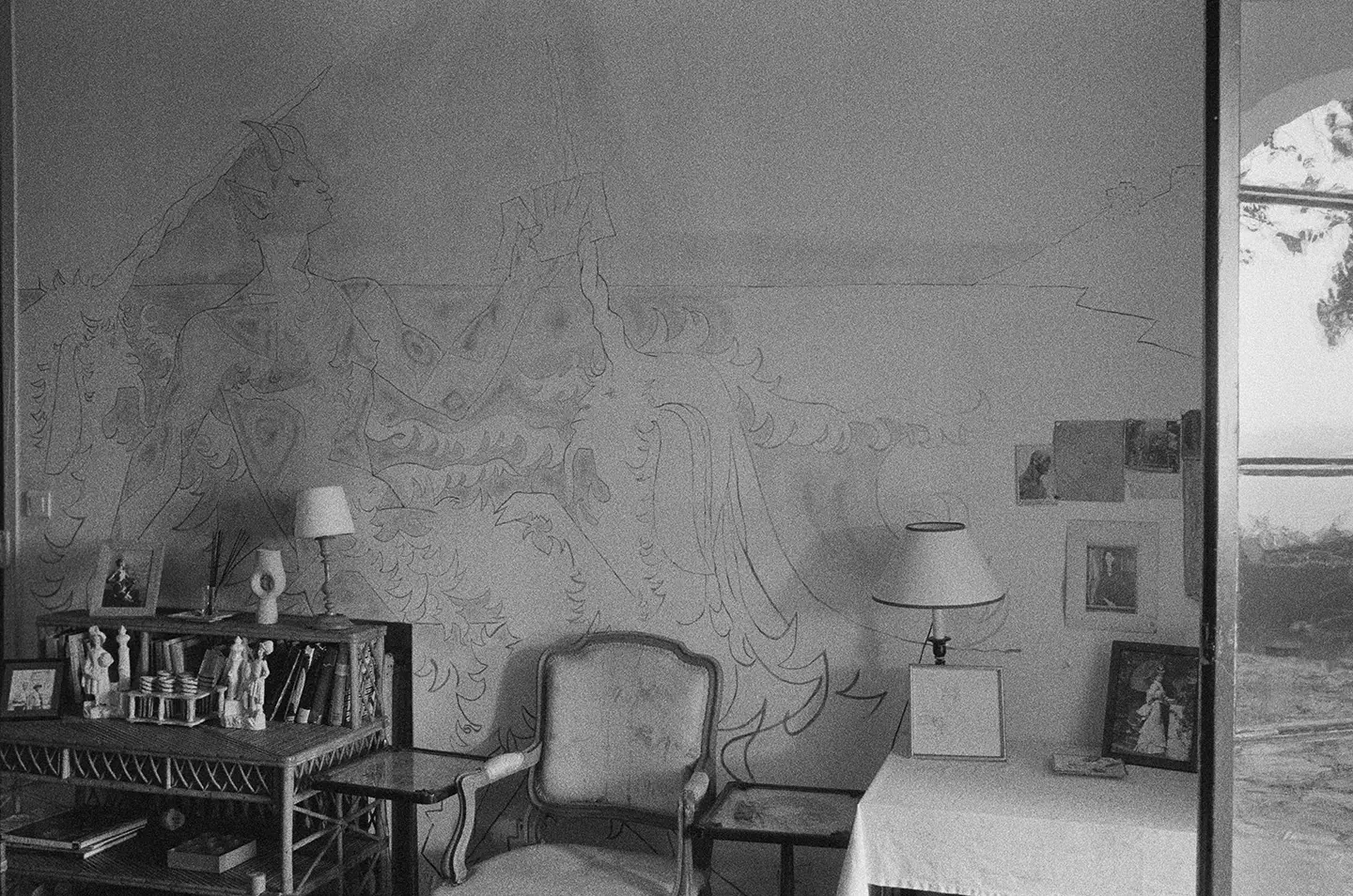
Mauro Restiffe, Santo Sospir #75, 2018. All images © Mauro Restiffe. Courtesy the artist and Fortes D’Aloia & Gabriel, São Paulo / Rio de Janeiro
The artist, who spent a week at the villa, concentrated on the details of the house, succeeding in capturing its silence. Restiffe did not set out to picture the rooms in their entirety, rather to focus on the objects and portraits that had belonged to those who inhabited the house, whose absence is palpable. Cocteau’s frescoes appear in the background, almost like backdrops, and are not the main subject of the photographer, who adopts a style that aims to suggest rather than to recount, evoking a glimpse, a thought, in an intimate approach characteristic of all Restiffe’s work, always interested in architecture, modernist in particular.
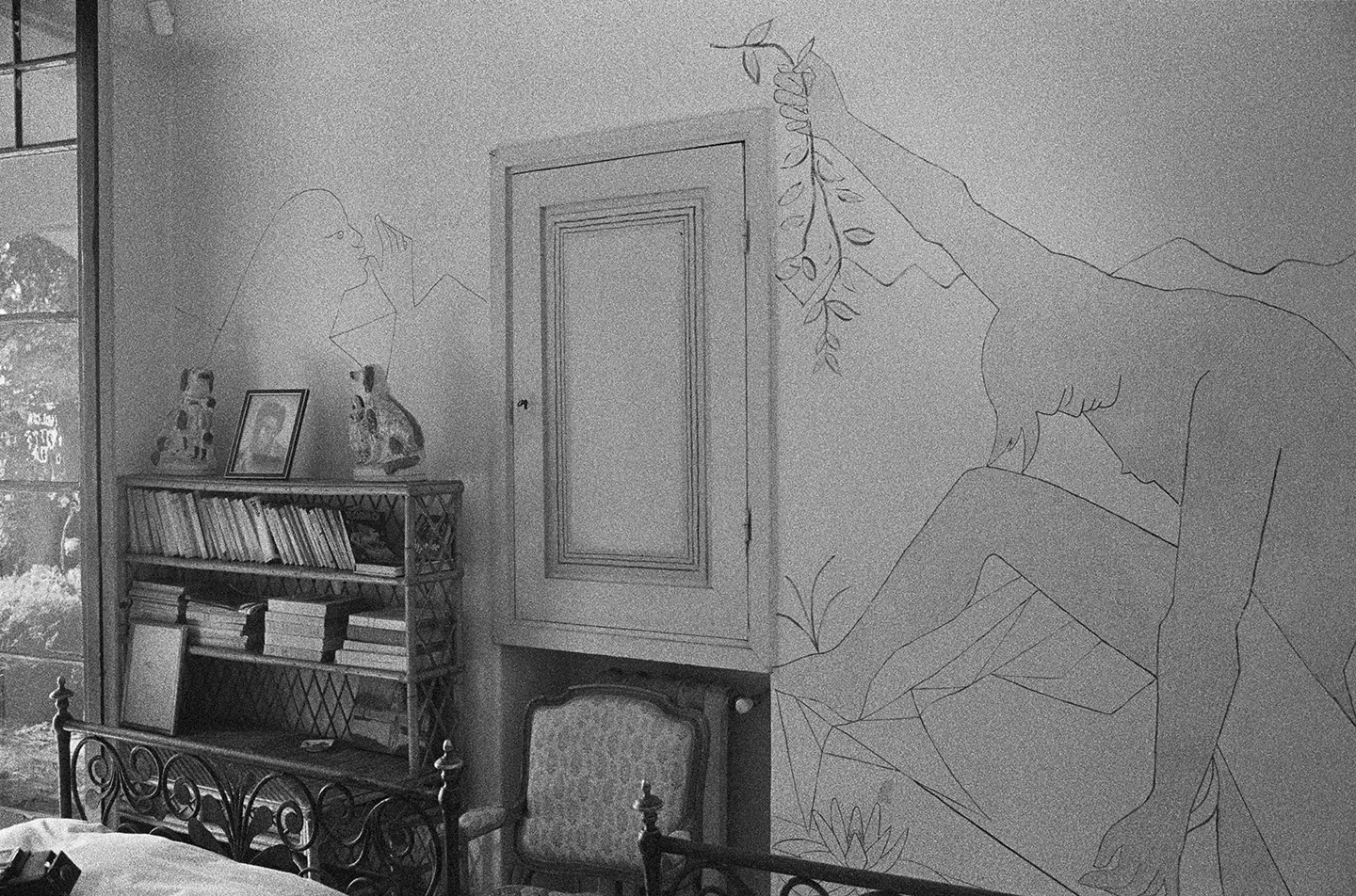
Mauro Restiffe, Santo Sospir #63, 2018. All images © Mauro Restiffe. Courtesy the artist and Fortes D’Aloia & Gabriel, São Paulo / Rio de Janeiro
But it’s not the building itself that grips Restiffe, so much as the traces left by people inside it, the story – be it public or private – for which the architecture is the setting, while he focuses on his own personal perspective. This approach is typical of his photographs of other private homes such as that of Carlo Mollino in Turin and the Avenida Paulista apartments, in which he lingered over the details that tell more about what has happened in the space than the entities as a whole, choosing to photograph them in black and white with a graininess that renders the image timeless. Photography that draws on film and literature, not intended to describe the physical space, but to render the idea of living inside it. An interior space.
Title: Mauro Restiffe: Santo Sospir
Edited: Stefano Cernuschi
Text: Célia Bernasconi
Design: Studio Temp
Publishing house: Lenz Press, Milan
Year of publication: 2021
All images © Mauro Restiffe


 Stories
Stories
